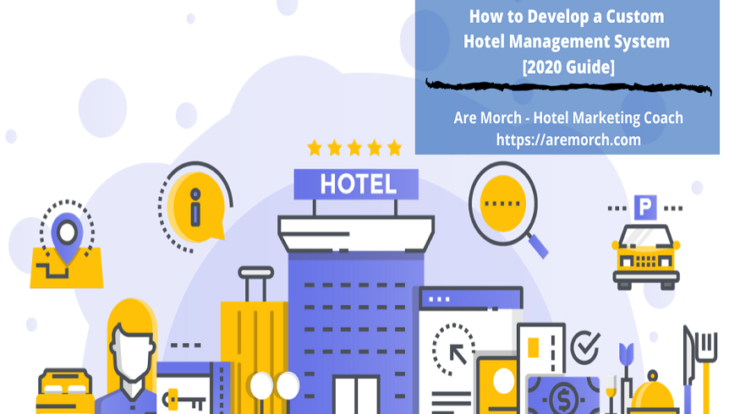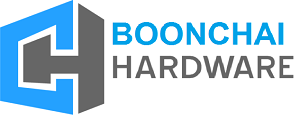
Running a hotel successfully in today’s competitive world requires efficient management of various operations. A hotel management system plays a vital role in streamlining operations and providing a superior guest experience. However, with various options available, choosing the right system can be an overwhelming task. This article discusses some key factors to consider while selecting a Hotel Management System.
1. Key Features and Modules
When selecting a hotel management system, it’s important to carefully evaluate the key features and modules required to suit the specific needs of your property. The first step is to identify the essential and value-adding functions based on factors like room count, amenities offered, target customer segments etc.
Core modules like a Property Management System (PMS) for reservations, check-ins/outs and billing should be intuitive with mobile access for staff. A Revenue Management System (RMS) is critical for larger hotels to optimize rates. An integrated Point of Sale (POS) streamlines F&B and retail operations.
Other key modules include Customer Relationship Management (CRM) for personalized marketing, a Channel Manager for booking integrations, and Business Intelligence (BI) tools for data-driven insights. Rather than piecemeal solutions, an integrated platform offering most or all required modules is ideal to avoid data duplication and syncing issues. It allows a holistic view of operations.
2. Ease of Use
The ease of use of the hotel management system is one of the most important factors to evaluate. A system that is not user-friendly can cause frustration among both employees and guests. It is critical to select a system with an intuitive and simple interface for both desktop and mobile devices.
The interface should be self-explanatory and easy to navigate so that employees do not require extensive training to learn how to use it. Common tasks like checking guests in and out, making reservations, processing payments etc. should have logical and streamlined workflows. Drop-down menus, search functions, and help guides can help reduce the learning curve.
Self-service kiosks, mobile room keys, online check-in, and other features provide contactless experiences for guests, which are becoming more and more crucial. The guest portal and app have to feature easily accessible language and icons, require the fewest clicks possible to do activities, and be responsive across all platforms. All functions must operate without hiccups. Additionally, the system needs to be adaptable to the particular procedures used by the hotel. Managers have to have the ability to adjust roles, permissions, and settings as well as build up processes to suit the requirements of the property.
3. Scalability and Flexibility
Since company demands might vary over time, scalability and adaptability are critical factors to take into account when designing a hotel management system. The system need to be able to expand without difficulty. The system should be able to grow without limits when the number of rooms, properties, or users rises. Because cloud-based systems operate on distant servers with nearly infinite storage space, they guarantee infinite scalability. As the company grows, costly on-premise hardware updates are not required.
The system should also flexibly accommodate changes through customizable configurations. Modular systems allow hotels to add or remove specific features and modules on demand. For example, adding an extra property, integrating new third-party solutions, or upgrading to advanced analytics tools.
Rigid packaged systems may not provide flexibility. They typically have set templates that cannot be modified later. Modular architecture with a la carte purchasing of individual components ensures better long-term adaptability. Scalability helps avoid costly replacement of the entire system for expanded needs. Flexibility saves funds by paying only for required upgrades instead of a whole new solution. It future-proofs the investment by allowing seamless integration of innovations.
4. Implementation and Support
When selecting a hotel management system, it’s important to thoroughly research researchresearch the implementation process and level of ongoing support provided by different vendors. Implementation timelines can vary significantly depending on the size, customizations required and type of system – on-premise or cloud-based. Cloud systems may be quicker to set up remotely without complex on-site installation.
On-premise solutions require deploying hardware. Costs should also be compared holistically. Cloud options have minimal hardware costs but higher subscription fees. On-premise may have high upfront licensing and equipment expenses but reduce recurring costs. Total cost of ownership over the lifetime of use is a better metric than just initial pricing. Post go-live support is critical to ensure smooth operations after launch.
5. Technology and Security
Leading hotel systems use robust and reliable technology platforms. Cloud-based systems have automatic updates and require no on-site servers or IT staff. Data security through encryption, authentication and backup policies should meet industry standards. Look for certifications. Opt for a vendor with a proven technology track record to avoid glitches.
6. Reporting and Business Intelligence
Advanced reporting features help analyze business performance, optimize strategies and drive decision making. Comprehensive standard reports on reservations, rates, occupancy, revenue etc. should be available. Customizable reports through filters and drill-downs allow analyzing data from different perspectives. Integrated BI tools present insights visually through interactive dashboards and scorecards. Look for data visualization, forecasting and benchmarking capabilities.
7. Pricing and Contracts
Compare total cost of ownership including one-time and recurring costs. Cloud-based systems have flexible pay-as-you-go pricing. On-premise systems have high upfront costs but lower TCO. Check pricing models like per-room, per-property or percentage of revenue share. Avoid hidden costs. Contract terms should be negotiable with reasonable notice periods and no lock-ins.
8. Customer Support and References
Speak to existing customers of different vendors to understand their experiences. Check support response times, issue resolution processes and regular system updates. Leading vendors have large customer bases, industry expertise and long-standing relationships. Consider financial stability of the vendor. Negotiate service level agreements for uptime guarantees and support commitments.
Conclusion
Carefully evaluate your unique needs and priorities to shortlist suitable hotel management systems for the solution of your How to manage hotel. Consider all functional, technical and commercial factors to select the right long-term partner and system for streamlined operations and improved business performance. Conduct thorough due diligence and negotiations before finalizing the contract.
